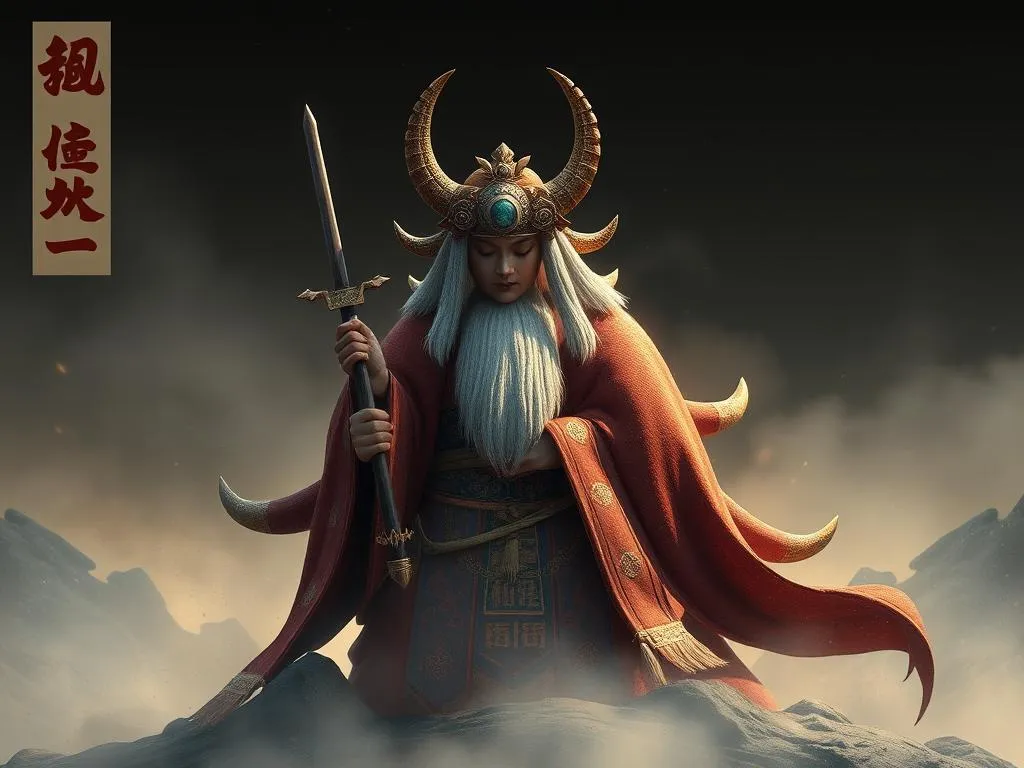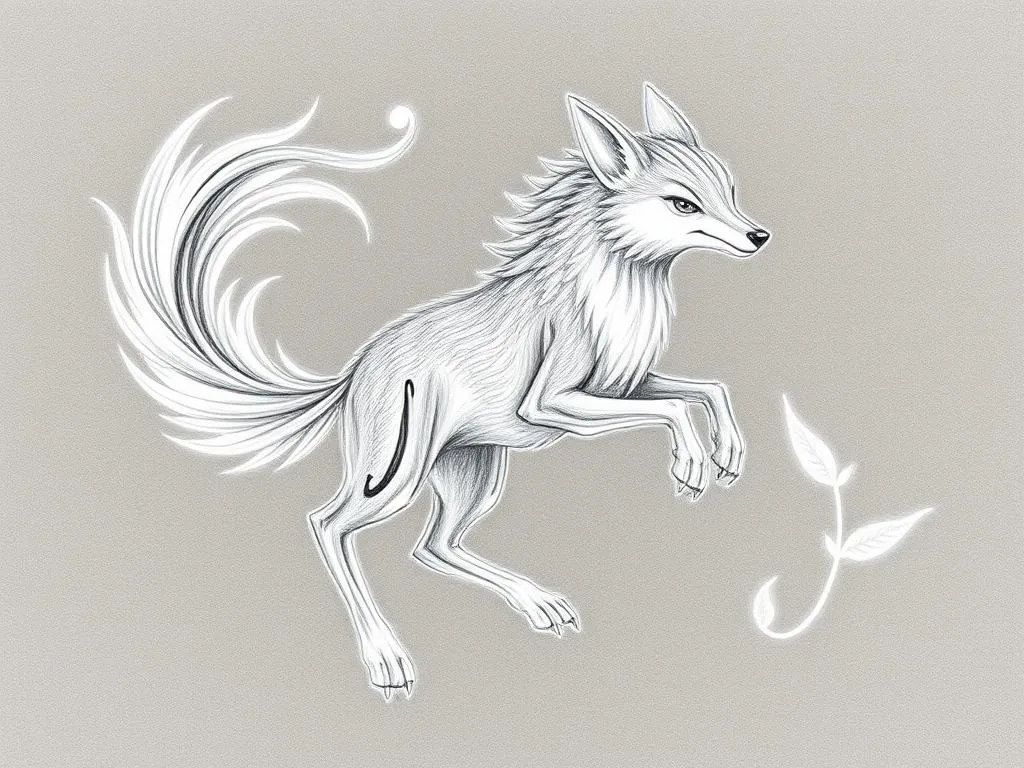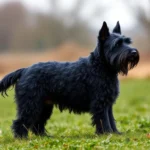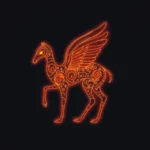Kishu Ken: Symbolism and Spiritual Significance

Disclaimer: Some images on this website are AI-generated artworks and may not accurately represent real animals.
The Kishu Ken, a remarkable dog breed originating from Japan, carries with it a rich tapestry of symbolism and meaning that transcends its physical form. Known for their elegance and agility, Kishu Kens are not just companions but also embody various spiritual attributes that resonate deeply within Japanese culture and beyond. This article delves into the intricate layers of the Kishu Ken, exploring its history, characteristics, symbolism, and significance in modern life.
Understanding the Kishu Ken
Origins and History
The Kishu Ken has a storied history dating back to ancient Japan, particularly in the Kishu region. Traditionally, these dogs were bred for hunting boar and deer, showcasing their prowess as formidable hunters. Their skills were essential for survival in rural Japan, where hunting was an integral part of life. Over time, the Kishu Ken evolved from a working dog to a beloved companion, valued for both its loyalty and intelligence.
Today, the Kishu Ken is recognized as a national treasure in Japan, reflecting the country’s respect and reverence for this noble breed. The role of the Kishu Ken has shifted from a mere hunting partner to a cherished family member, showcasing its adaptability and enduring appeal.
Physical Characteristics
The Kishu Ken is medium-sized, with a well-proportioned body that speaks to its athleticism. Below is a table outlining some of the breed’s key physical characteristics:
| Characteristic | Description |
|---|---|
| Size | Medium (18-22 inches tall) |
| Coat | Short, dense, and weather-resistant |
| Color | White, red, brindle, or black |
| Notable Features | Erect ears, curled tail, muscular build |
In comparison to other Japanese dog breeds like the Shiba Inu and Akita, the Kishu Ken is often described as more reserved yet fiercely loyal. While the Shiba Inu is known for its spirited personality and the Akita for its majestic stature, the Kishu Ken strikes a balance between independence and companionship.

Symbolism & Spiritual Meaning
Courage and Loyalty
The symbolism of courage and loyalty associated with the Kishu Ken cannot be understated. Historically, these dogs were not only hunting companions but also protectors of their families. Their unwavering loyalty made them integral members of rural households, where they safeguarded against threats.
In Japanese culture, loyalty is a highly revered trait. The Kishu Ken embodies this quality, serving as a living testament to the bond between humans and dogs. This loyalty goes beyond mere companionship; it reflects a profound connection that fosters trust and mutual respect.
Independence and Resilience
Another significant aspect of the Kishu Ken’s symbolism is its independence and resilience. As a breed, Kishu Kens are naturally self-reliant, displaying traits that allow them to thrive in various environments. This independence stems from their background as hunting dogs, where they were often required to make decisions and act without direct supervision.
In the context of rural Japan, the Kishu Ken’s adaptability is a symbol of survival. They have learned to navigate the complexities of their environment, making them both resilient and resourceful. This connection to independence resonates with many people who value self-sufficiency and the ability to face challenges head-on.
Connection to Nature
The Kishu Ken’s connection to nature is another profound aspect of its symbolism. As a breed that has coexisted with wildlife for centuries, they embody a spirit of harmony and balance within the natural world. This relationship is not merely instinctual; it reflects a deeper understanding of the environment and the importance of cohabitation.
In many cultures, animals are seen as messengers or symbols of nature’s wisdom. The Kishu Ken, in its graceful movement and keen instincts, represents a bridge between humanity and the wild, reminding us of our place within the ecosystem. This connection emphasizes the importance of respecting nature and understanding our role in preserving it.
Kishu Ken in Dreams
Interpreting Kishu Ken Dreams
Dreams featuring the Kishu Ken can carry significant meanings, often reflecting aspects of the dreamer’s personality or current life situations. Seeing a Kishu Ken in a dream may symbolize loyalty, protection, and a desire for independence. It may also indicate the presence of a strong, reliable figure in the dreamer’s life or the need to embrace one’s self-reliance.
Symbolism of Kishu Ken Behaviors in Dreams
Understanding the behaviors exhibited by Kishu Kens in dreams can provide further insight into their symbolism. Below is a table summarizing common Kishu Ken behaviors and their potential meanings:
| Kishu Ken Behavior | Symbolic Meaning |
|---|---|
| Protecting the owner | Loyalty and guardianship |
| Running freely | Independence and freedom |
| Playing with others | Joy, companionship, and social connection |
| Showing aggression | Warning against potential threats |
When Kishu Kens display loyalty or protective traits in dreams, they may be urging the dreamer to maintain strong connections with loved ones or to be vigilant in their relationships. Alternatively, if the dog is seen running freely, it may symbolize a longing for freedom or the need to explore new opportunities.
Modern Interpretations
Kishu Ken as a Companion Animal
In contemporary society, the Kishu Ken has gained popularity as a companion animal. Their unique traits, including loyalty, intelligence, and resilience, make them ideal pets for families and individuals alike. Kishu Kens are known for their affectionate nature, forming strong bonds with their human companions.
Their adaptability allows them to thrive in various living conditions, from urban apartments to rural homes. However, potential owners should be aware that Kishu Kens require regular exercise and mental stimulation due to their active nature. Engaging in outdoor activities, such as hiking or running, can help fulfill their physical and emotional needs.
Cultural Representation
The Kishu Ken has also found its way into various aspects of culture, including media, art, and literature. As awareness of this breed grows globally, more people are beginning to appreciate its unique qualities and the symbolism it represents. The Kishu Ken has been featured in documentaries and films, highlighting its role as a loyal companion and skilled hunter.
In literature, Kishu Kens often embody themes of loyalty, courage, and resilience, making them compelling characters that resonate with readers. This cultural representation further cements the breed’s status as a symbol of the human-animal bond and the virtues we aspire to embody.
Key Takeaways
Understanding the Kishu Ken encompasses much more than recognizing its physical traits. Here are some key points to consider:
- The Kishu Ken is a symbol of loyalty and courage, deeply embedded in Japanese culture.
- Its independence and resilience reflect the breed’s historical role in rural Japan.
- The Kishu Ken’s connection to nature emphasizes the importance of harmony and balance in our lives.
- Modern interpretations depict the Kishu Ken as a beloved companion animal, valued for its unique traits.
- Cultural representations further enhance the breed’s significance, showcasing its role in literature, art, and media.
Conclusion
In summary, the Kishu Ken is not merely a breed of dog; it embodies a wealth of symbolism and meaning that speaks to the heart of human-animal relationships. From its courageous nature and loyalty to its independent spirit and connection to nature, the Kishu Ken offers a unique insight into the values we hold dear.
For those considering a Kishu Ken as a companion pet, understanding its traits and symbolic meanings is essential. This breed is a testament to the enduring bond between humans and dogs, and its rich history and cultural significance make it an exceptional choice for any pet lover. Exploring the world of the Kishu Ken can reveal not only a loyal companion but also a profound connection to the values that define our lives.







